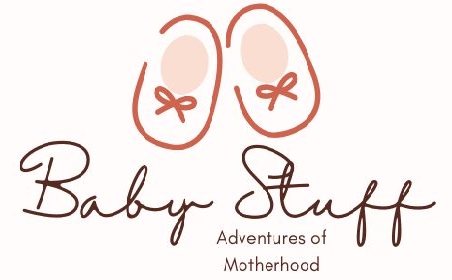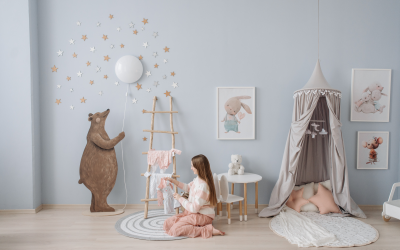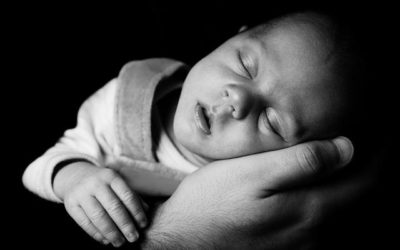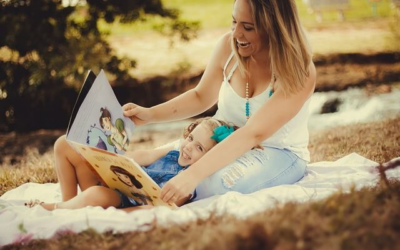Though it is often said that a baby is not considered a newborn until they reach the age of one month, this statement is not always accurate. There are numerous milestones that a baby must reach to be considered a newborn. In fact, there are several different definitions of what it means to be a newborn.
The most important factor in determining whether someone is considered a newborn is their stage of development. A baby who has reached all developmental milestones for their age may be considered a newborn, even if they are only one week old.
What are the Developmental Milestones for a Newborn Baby?
When we talk about a baby’s development, we refer to the process of a baby growing and changing as they age. This process begins at birth and continues throughout the early years, as your baby grows into a toddler and then a preschooler.
During the newborn stage, babies learn to adapt to life outside the womb. They are learning to feed, sleep, and communicate their needs. It is an amazing time of growth and development.
The following are some milestones that you may see during the newborn stage:
- Feeding: Babies will typically nurse 8-12 times per day.
- Sleeping: Newborns sleep an average of 16 hours daily, with frequent naps during the day.
- Communicating: Babies will cry to communicate their needs. They may also coo, gurgle, and make other sounds.
- Physical Development: During the first few weeks, your baby’s head will begin to take on a round shape. Their skin will become less wrinkled as they fill out. You may also notice that their eyes are beginning to open and close.
If you have concerns about your baby’s development, please speak with your child’s doctor.
The Physical, Emotional and Cognitive Changes that occur in a Baby During their First Few Months. During their first few months, babies go through a lot of changes. They grow and develop physically, emotionally, and cognitively. Here are some of the changes that occur during this time:
Physical Changes
During the first few months, babies grow rapidly. They double their birth weight by about four to five months old and triple it by the time they are a year old. Babies also start to develop muscle tone and coordination. They learn to control their head and sit up on their own around six to seven months old.
Emotional Changes
During the first few months, babies also start to develop emotions. At first, they only experience two emotions – happiness and sadness. However, by two or three months old, they start to experience more complex emotions, such as anger, fear, and love.
Cognitive Changes
Babies’ brains also undergo many changes during the first few months. They start to develop their memory and attention span. They also begin to understand cause and effect. For example, they learn that if they shake a rattle, it makes a noise.
How do Doctors Determine Whether a Baby is a Newborn?
Doctors generally determine whether a baby is a newborn based on how old the baby is and how much the baby weighs. Babies who are less than four weeks old and weigh less than five pounds are generally considered newborns.
Once a baby is no longer considered a newborn, the care they need will change. They will no longer need to be fed as often and will start sleeping for longer periods. Additionally, they will start developing their immune system and no longer need to be kept in sterile conditions.
What are Some of the Defining Characteristics of a Newborn Baby?
As far as medical professionals are concerned, a baby is considered a newborn from the moment of birth until 28 days after. During this time, it’s normal for babies to have irregular sleep patterns, to need to be fed frequently, and to cry often. Newborns also startle easily and have little control over their limbs. Here are the defining characteristics of a newborn baby:
- Sleeps a lot, but not for long stretches at a time
- Ears often
- Cries frequently
- Startles easily
- Has little control over limbs
- May have trouble regulating body temperature
- May have jaundice (yellowing of the skin)
- May have a stuffy nose and trouble breathing
- May have a weak suck reflex
- May have trouble staying awake for more than a few minutes at a time
When is a Baby no Longer a Newborn
A baby is no longer a newborn after about 4-6 weeks. Newborns need a lot of care and are very fragile. After 4-6 weeks, they become more robust and can start to eat solid food. Babies also sleep less and are more alert during this time. When it comes to development, babies are no longer newborns after they start to interact with their surroundings. They learn to hold their head up, smile, and make other facial expressions. Babies also begin to babble and make cooing sounds. All of these milestones are signs that a baby is growing and changing. Babies develop at different rates, so it is important to talk to your pediatrician if you have any concerns about your child’s development. After 4-6 weeks, babies become more robust and can start to eat solid food. Babies also sleep less and are more alert during this time.
The Importance of Bonding with Your Newborn Baby
It is important to bond with your newborn baby as soon as possible. This can be done by skin-to-skin contact, holding, cuddling and talking to them. This will help your baby feel loved and secure and encourage them to develop a close relationship with you. It is also important to respond to your baby’s cues, such as crying and hunger cries. Bonding with your newborn baby can not only help them feel loved and secure, but can also help to improve their health and development.
When you bond with your baby, you are also helping to build a foundation for a healthy and happy relationship. This bonding time is important for both of you and will help you better understand each other’s needs and cues. So make sure to take some time out of your busy schedule to bond with your new baby – it will be time well spent!
Adjusting to Life With a New Addition to the Family
Adjusting to life with a new addition to the family can be tough. Here are some tips to help you make the transition:
1. Establish a routine. A baby thrives on predictability, so establish a regular feed schedule, naps and bedtime. This will help your little one (and you!) feel more relaxed and less frazzled.
2. Get some sleep. Whenever possible, take advantage of opportunities to catch up on sleep, whether taking a nap when your baby does or enlisting the help of family and friends, so you can get some rest.
3. Eat healthily and stay hydrated. It’s easy to forget to care for yourself when you’re focused on caring for a new baby. But it’s important to eat healthy meals and stay hydrated. This will help you maintain your energy levels and better cope with the stress of caring for a newborn.
4. Accept help from others. Don’t be afraid to ask for help from family and friends. Most people are happy to lend a hand, whether watching the baby so you can take a shower or running errands for you.
5. Take time for yourself. Make sure to schedule some “me time” into your week – even if it’s just an hour or two to read a book, take a bath or go for a walk. Taking a break will help you recharge and be a better parent.
6. Seek out support. If you’re feeling overwhelmed, talk to your partner, a friend or a counselor. There are also many great online resources and support groups for parents of newborns.
Following these tips can make the transition to life with a new baby a little bit easier.
Final Thoughts
There is no definitive answer to the question of when a baby is no longer considered a newborn. For some parents, it may be when their child reaches a certain age or milestone, such as sleeping through the night or starting solids. Others may feel like their baby is growing up too fast! Ultimately, it is up to each parent to decide when they feel comfortable transitioning from newborn to infant.
Also interesting to read:
- What is Baby Blues? How does it Affect a Mother’s Life?
- 12 Weeks Pregnant: What to Expect and Avoid?
- Smoking Pregnancy: The Effects of Smoking on Mothers and Infants
- Teenage Pregnancy: Is it a Good Idea to Have a Baby in Teenage?
- Lower Back Pain Pregnancy: How to Treat it?
- Pregnancy Complications: How to Avoid Complications During Pregnancy?
- Pregnant Help – Unintended Pregnancy
- What is Ectopic Pregnancy: Is it Harmful?
- Guide to Healthy Pregnancy and Prenatal Care
- Healthy Food of Pregnancy – The Ultimate Guide
- Calorie Calculator in Pregnancy: A Tool to Maintain Good Health





